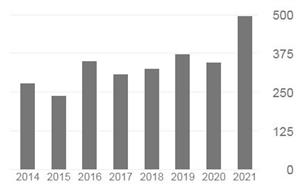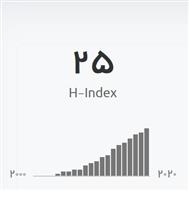The Micro-Shear Bond Strength of Various Resinous Restorative Materials to Aged Biodentine
Abstract
Introduction: The type of materials and application time of veneering restorations on calcium silicate cements are important factors which influence the interfacial properties. The aim of this study was to measure the micro-shear bond strength of a resin composite (RC) using several adhesive systems and a resin-modified glass ionomer cement (RM-GIC) to different aged Biodentine specimens.
Methods and Materials: A total of 15 Biodentine blocks were prepared and assigned to three aging periods: 12 min, one week and one month. Then they were subdivided into five sub-groups to receive cylinders of resinous materials. RC was applied using different adhesive systems: A) no adhesive B) etch and rinse C) two-step self-etch and D) universal adhesive in self-etch mode and E) RM-GIC applied directly over Biodentine. Micro-shear bond strength was measured and the data were analyzed using one-way and two-way ANOVA. The level of significance was set at 0.05.
Result: There was significant interaction between Biodentine aging periods and resinous materials (P<0.05). The highest value was obtained in group D bonded to the recently set Biodentine. Increasing the aging period to one week resulted in increased micro-shear bond strength in all groups expect for group D. One-month incubation time led to reduced shear bond strength in group A, C and D. Micro-shear bond strength values of group E increased to the longer aged Biodentine.
Conclusion: Group D showed the highest bond strength to freshly mixed Biodentine.
Keywords: Bond Strength, Composite Resin, Dental Adhesive, Glass Ionomer Cement, Tricalcium Silicate.














